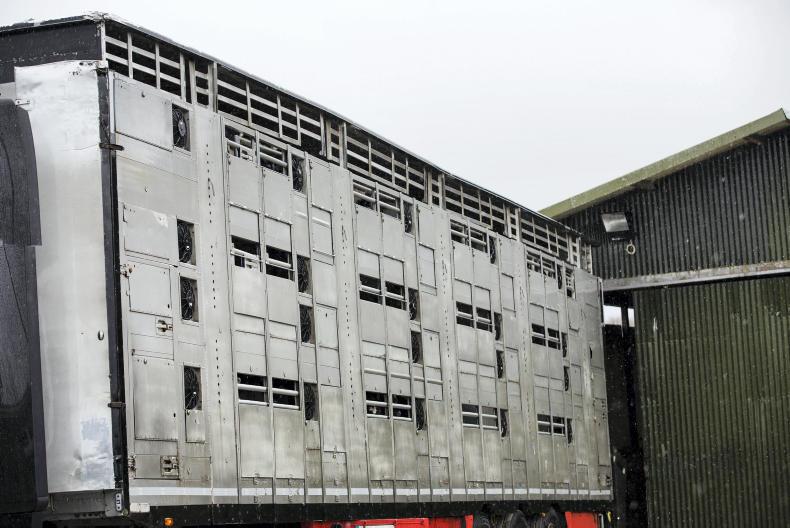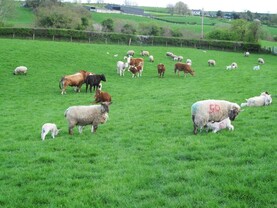Ireland's participation in long-distance live exports and its strong record on animal welfare have been contrasted with practices in other countries in lengthy debates in the European Parliament in recent days.
The Parliament's Agriculture Committee discussed a draft report by Danish MEP Jørn Dohrmann on standards in live transport, which recommends restricting live exports through maximum travel times and banning those to countries that do not meet EU standards.
"We could slaughter closer to the point of origin, even on the farm itself," MEP Dohrmann said.
Long-distance transport
Janusz Wojciechowski of the European Court of Auditors told the committee that 18 countries – including Ireland – use the optional CAP measure available to improve animal welfare. However, he also questioned long-distance live exports, singling out Irish shipments to the Middle East.
"It's pretty impossible to guarantee the standards over the thousands of kilometres over which these animals are transported. Therefore, economic instruments should be applied to reduce or eliminate those modes of transportation" and make them "financially unviable", Wojciechowski said.
Willy Baltussen from Wageningen University in the Netherlands contributed an independent study on the enforcement of transport rules to the debate. He said Ireland was an "outlier", with 16.7% of failed inspections on transports of live animals in 2015, while other countries reported little or no infringements. However, all speakers agreed that the quality of enforcement and data between EU was wildly inconsistent and needs to be harmonised.
Irish MEP Mairead McGuinness pointed out that, according to the same study, Bulgaria reported zero non-compliance across 4m inspections.
"We do a lot of inspections, they are very rigorous. Are we comparing like with like?" she said. She was joined by EPP party colleague Sofia Ribeiro in promising amendments to the report before its adoption in the new year.
"There is room for improvement but we can say that the EU is a shining light for the rest of the world on this issue," said MEP Ribeiro.
Several MEPs, including Ireland's Luke Ming Flanagan, supported the draft report's view that unnecessary live transport results from the closure of small rural abattoirs and meat industry concentration. However, Baltussen disagreed, pointing out that many animals are transported to be slaughtered where processing is cheaper regardless of distance. While transporting carcases or meat is cheaper, he said that some buyers prefer live animals.
Read more
Align third-country standards or ban live exports says EU report
A glance at 2018 live export destinations
Call for improved enforcement over animal welfare
Ireland's participation in long-distance live exports and its strong record on animal welfare have been contrasted with practices in other countries in lengthy debates in the European Parliament in recent days.
The Parliament's Agriculture Committee discussed a draft report by Danish MEP Jørn Dohrmann on standards in live transport, which recommends restricting live exports through maximum travel times and banning those to countries that do not meet EU standards.
"We could slaughter closer to the point of origin, even on the farm itself," MEP Dohrmann said.
Long-distance transport
Janusz Wojciechowski of the European Court of Auditors told the committee that 18 countries – including Ireland – use the optional CAP measure available to improve animal welfare. However, he also questioned long-distance live exports, singling out Irish shipments to the Middle East.
"It's pretty impossible to guarantee the standards over the thousands of kilometres over which these animals are transported. Therefore, economic instruments should be applied to reduce or eliminate those modes of transportation" and make them "financially unviable", Wojciechowski said.
Willy Baltussen from Wageningen University in the Netherlands contributed an independent study on the enforcement of transport rules to the debate. He said Ireland was an "outlier", with 16.7% of failed inspections on transports of live animals in 2015, while other countries reported little or no infringements. However, all speakers agreed that the quality of enforcement and data between EU was wildly inconsistent and needs to be harmonised.
Irish MEP Mairead McGuinness pointed out that, according to the same study, Bulgaria reported zero non-compliance across 4m inspections.
"We do a lot of inspections, they are very rigorous. Are we comparing like with like?" she said. She was joined by EPP party colleague Sofia Ribeiro in promising amendments to the report before its adoption in the new year.
"There is room for improvement but we can say that the EU is a shining light for the rest of the world on this issue," said MEP Ribeiro.
Several MEPs, including Ireland's Luke Ming Flanagan, supported the draft report's view that unnecessary live transport results from the closure of small rural abattoirs and meat industry concentration. However, Baltussen disagreed, pointing out that many animals are transported to be slaughtered where processing is cheaper regardless of distance. While transporting carcases or meat is cheaper, he said that some buyers prefer live animals.
Read more
Align third-country standards or ban live exports says EU report
A glance at 2018 live export destinations
Call for improved enforcement over animal welfare






 This is a subscriber-only article
This is a subscriber-only article








SHARING OPTIONS: